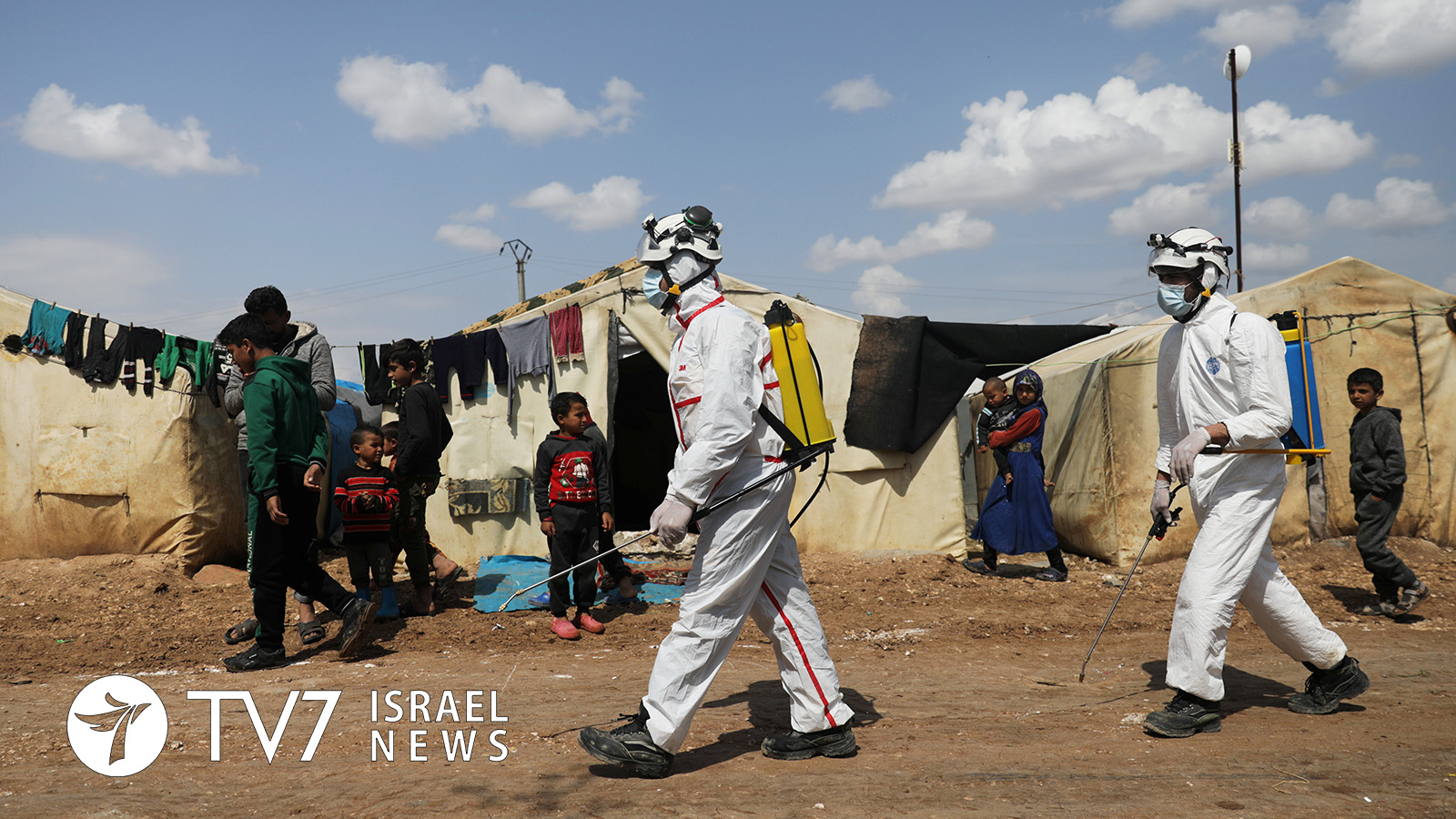The United Nations and the International Committee of the Red Cross (ICRC) declared that an immediate nationwide ceasefire is needed in Syria to facilitate an “all-out-effort” to eradicate the coronavirus and prevent it from further ravaging an already-beleaguered population.
Syrians are “acutely vulnerable” to the disease, the UN Special Envoy for Syria Geir Pedersen said in a statement.
Doctors and aid workers say COVID-19 in the Arab Republic brings the prospect of a deadly outbreak to residents devastated by nine years of war, with damaged or destroyed hospitals and tightly-packed refugee that are likely to accelerate infection.
In a videoconference meeting with the Security Council, UN Emergency Relief Coordinator Mark Lowcock said the ten confirmed cases in Syria are only “the tip of the iceberg, with the virus having the potential to have a devastating impact on vulnerable communities across the country,” according to a UN spokesperson. There have been just two reported virus-related fatalities.
The government of President Bashar al Assad announced its first case on 22 March after unconfirmed reports suggested the virus had been detected but covered up; a charge officials denied, while rolling out tight measures as the disease swarmed neighboring countries. The ICRC insists that while Syrian health officials maintain the number of cases is quite limited, quick action is needed to halt a spread.
A nationwide night curfew from 6 PM to 6 AM has been in effect since 25 March, as lockdown measures to counter the spread of coronavirus were extended, according to state media. The announcement followed the detection of three new coronavirus cases just a few hours before the beginning of the daily 12 hour curfew, which will last until further notice.
The government had already ordered the closure of shops, markets and public transport, allowing only pharmacies to open and limited deliveries of bread to prevent crowding near bakeries.
It is feared that a potential humanitarian catastrophe threatens internally-displaced Syrians living in overflowing camps where healthcare and clean water are often scarce. Rescue workers whose usual role is to respond to government bombardments have been seen sanitizing classrooms and camps in Syria’s Azaz region, but illnesses are still rife and social distancing is almost impossible to enforce.
42-year-old Ali Hallak, who was uprooted from Aleppo, told Reuters he was scared for his life. “As you have seen the situation in the camps, we are afraid of corona, these tents are not able to protect us from the virus and we are not able to sanitize the tents,” he said.
Over in North Lebanon, a Syrian refugee woman expressed utter despair over her situation. Mahassen, who is a widow and a mother of four, said, “It is a disease that came for the whole world, and I am not afraid, I actually want to be infected with corona and die…because one can then rest from all of this life.”
Nearly 70 million people uprooted by war and persecution around the world are in acute danger, says the United Nations High Commissioner for Refugees (UNHCR), which is asking member states to help tackle this problem.
“This is a virus that is attacking all of humanity and everybody, all of humanity should fight back as one. This kind of battle cannot afford to leave anybody behind, if anybody is left behind, if there are people who are poor or marginalized or refugees or who are not capable of protecting themselves on their own, they are left behind, the efforts to combat this virus will fail everyone has to be included,” said UNHCR Senior Communications Advisor and Spokesperson for the Middle East and North Africa, Rula Amin.
According to the latest figures, the coronavirus has exceeded all previous outbreaks, infecting 787,438 globally and killing at least 37,846 (at the time this article was published).
